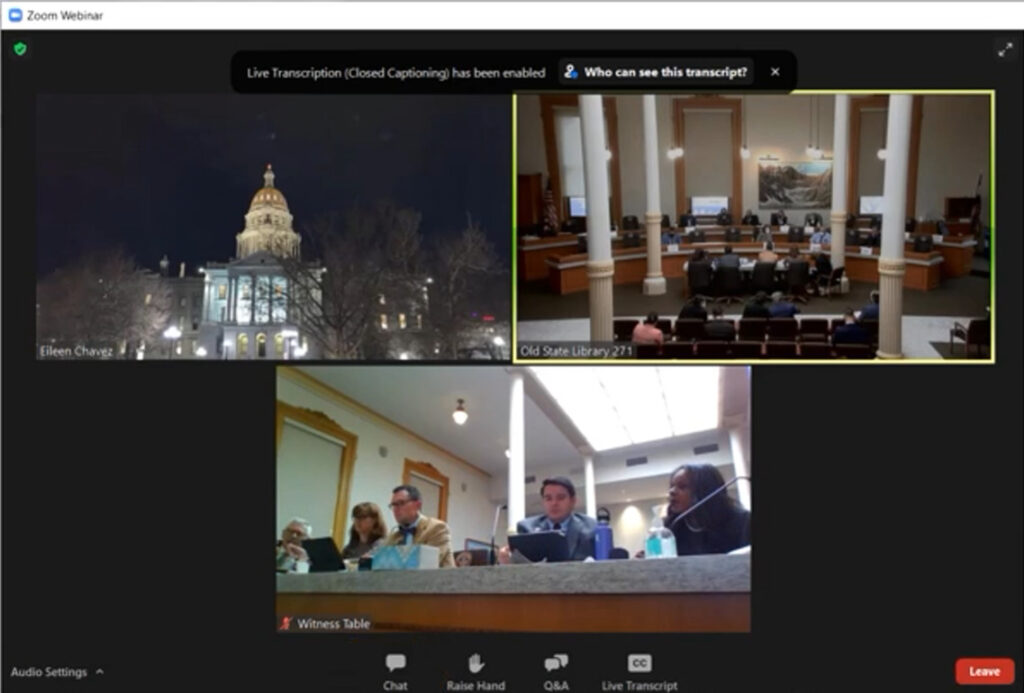Update: The Colorado Senate unanimously passed HB 22-1413 on May 10, sending the bill to Gov. Jared Polis.
By Jeffrey A. Roberts
CFOIC Executive Director
Remote testimony on bills, a positive outgrowth of the COVID-19 pandemic, likely will remain an option for the public during future sessions of the Colorado General Assembly.
House Bill 22-1413, which passed the House State, Civic, Military and Veterans Affairs Committee on Wednesday, authorizes the Legislative Council’s Executive Committee to set policies for letting lawmakers take testimony from people via their computers.

It removes outdated language in the law permitting testimony by teleconferencing from “centralized remote sites located around the state.”
“Being able to participate remotely is actually a way to promote democracy and allow more voices to be heard at the table,” said House Majority Leader Daneya Esgar, D-Pueblo, who introduced HB 22-1413 with House Minority Leader Hugh McKean, R-Loveland.
Prior to the pandemic, nearly all testimony on legislation had to be in person at the state Capitol in Denver, with people often waiting hours in committee rooms for their turn to speak. The legislature permitted remote testimony on certain bills from 10 designated locations outside the Denver metro area.
For a time after COVID-19 hit in 2020, the legislature only allowed testimony in person or in writing. People eventually were given the opportunity to testify by Zoom no matter where they are located, and legislative staffers produced a six-minute video explaining how to sign up and participate.
“We’ve seen, as the technology has improved, it is easier to be able to do it simply from your home or your office or wherever you may be at that moment the committee decides they’re ready to meet and your bill is up,” Esgar said.
One person testified — remotely — on HB 22-1413 during Wednesday’s committee hearing. Sharon Anable of Fruita told lawmakers she was especially grateful for the remote-testimony option after she broke her shoulder and couldn’t drive.
“Even going to a remote testimony site would not have been possible. So this format has actually allowed me to continue to participate in the legislative process even with my temporary disability,” Anable said. “It really does allow all Coloradans, no matter what their situation, to be part of this very important process in our state.”
Just one committee member, Rep. Rod Bockenfeld, R-Watkins, voted against HB 22-1413. Rep. Dan Woog, R-Erie, said he doesn’t like that the bill lets government officials and employees testify remotely, but he voted yes.
Because the remote testimony system would cost $401,709 in fiscal year 2022-23, the bill goes next to the House Appropriations Committee.
Follow the Colorado Freedom of Information Coalition on Twitter @CoFOIC. Like CFOIC’s Facebook page. Do you appreciate the information and resources provided by CFOIC? Please consider making a tax-deductible donation.




